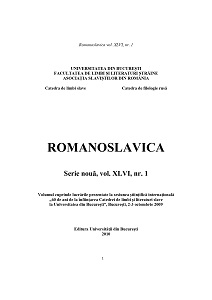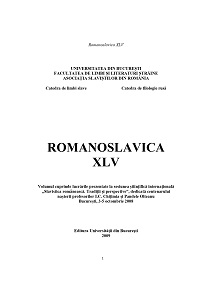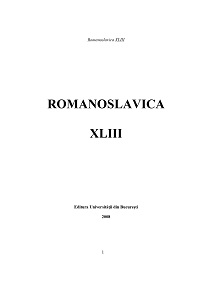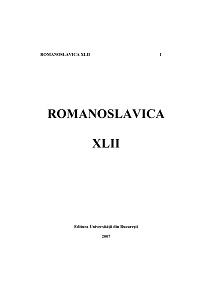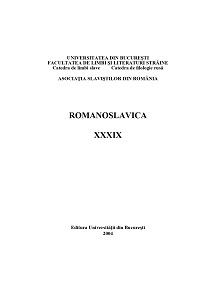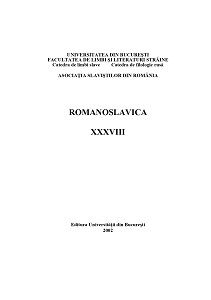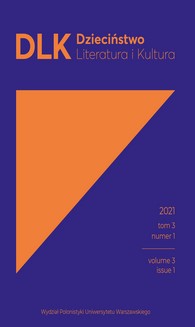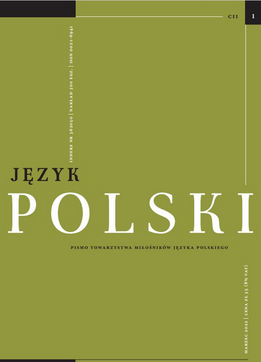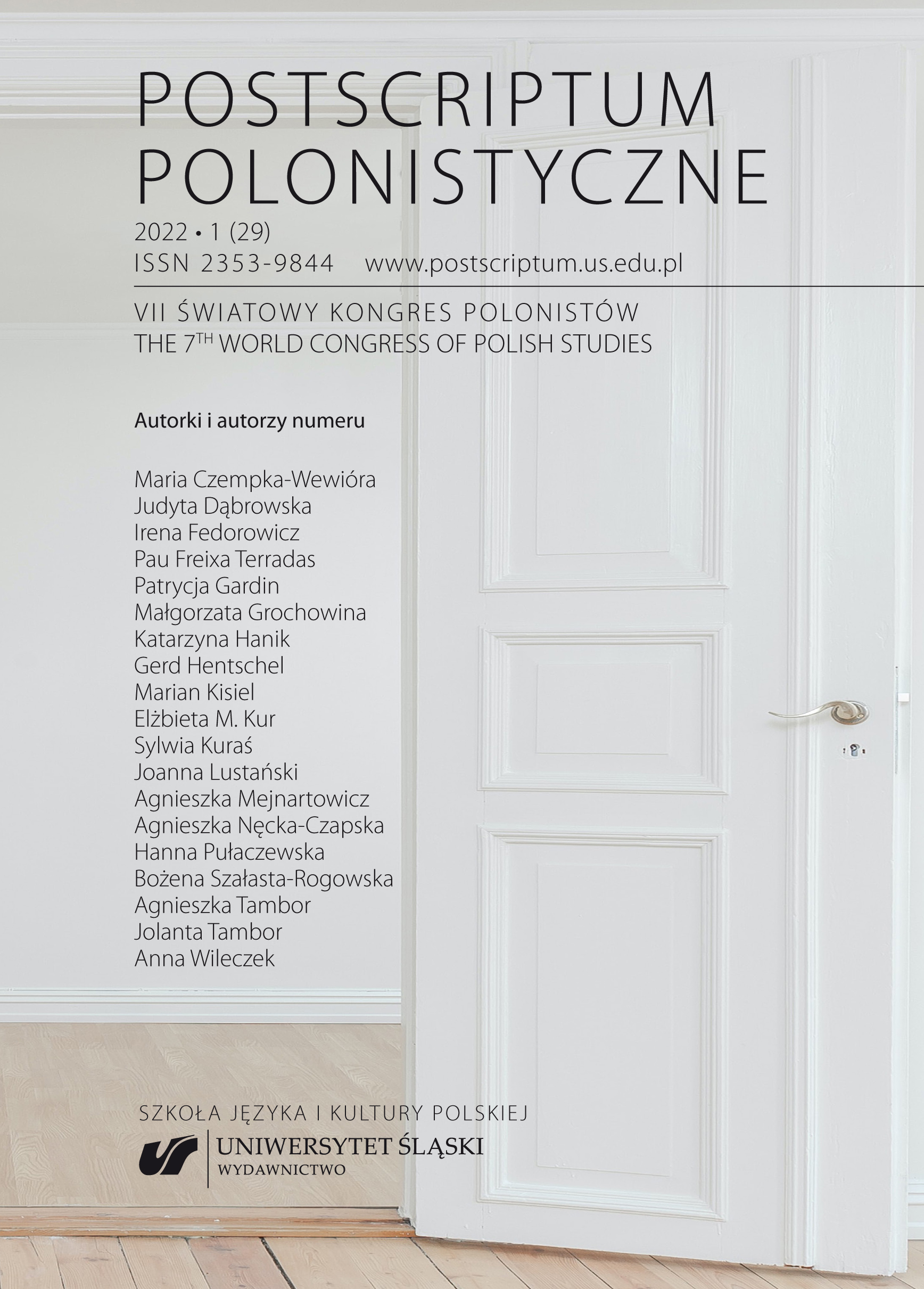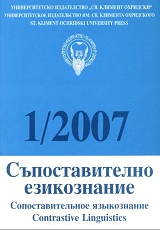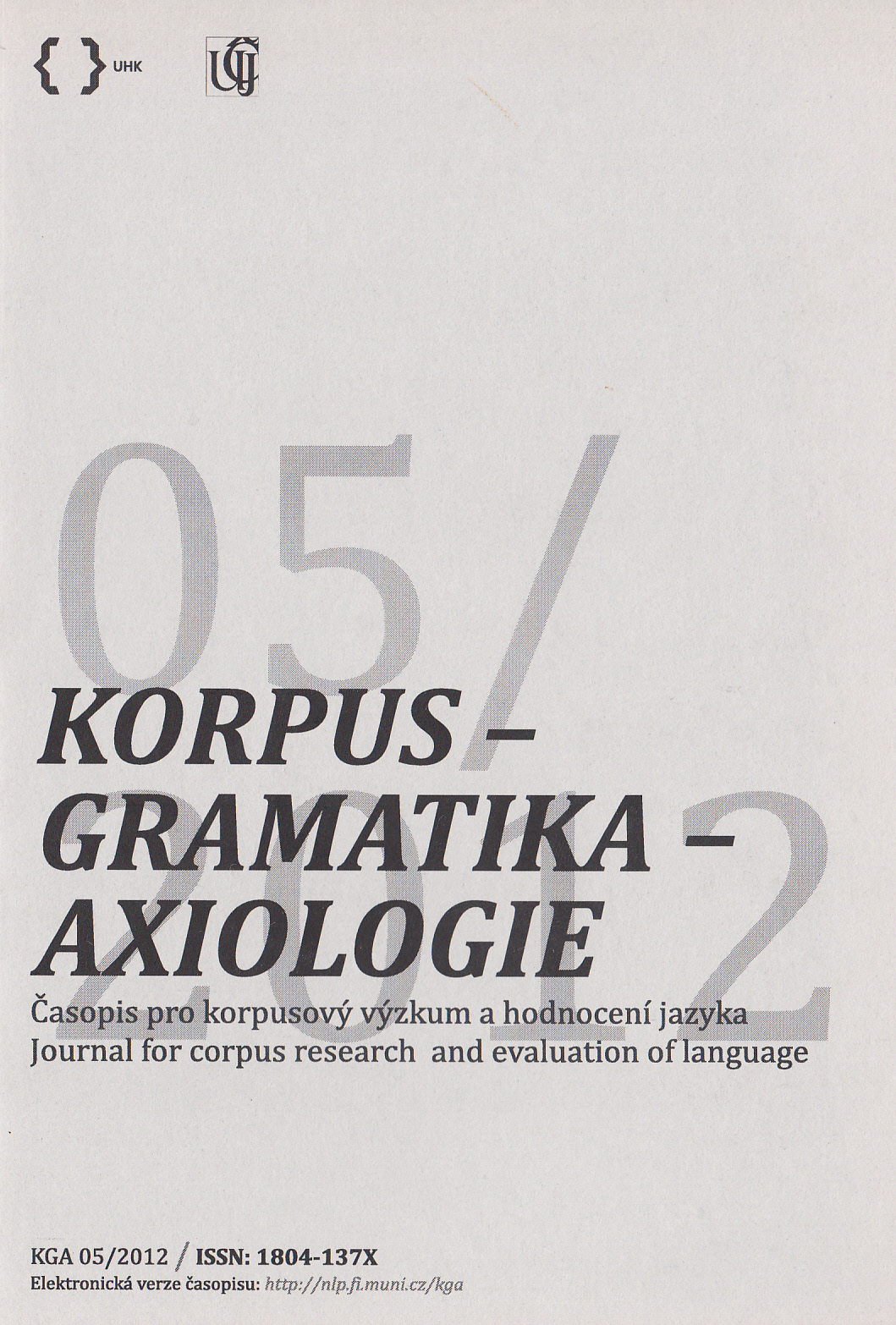
Syntaktické konstrukce typu Včely se hemží na zahradě – Zahrada se hemží včelami
In this paper, we focus on the relation between Czech syntactic constructions Bees are swarming in the garden – The garden is swarming with bees. We refer to this relation as a lexical-semantic conversion. This lexical-semantic conversion is associated with changes in the correspondence between two situational participants – Bearer of action and Location – and valency complementations. These changes result in a permutation of these participants which affects the prominent surface syntactic position of subject. We demonstrate that whereas the first syntactic variant refers to a simple action, the latter expresses rather a state arising from this simple action. In the latter case, the participant Location is usually holistically interpreted. We assume that the holistic effect of this participant follows from the fact that a state is generally attributed to each participant expressed in the subject position as a whole. Furthermore, syntactic variants with formal subject to and subjectless constructions (usually conceived as formal paraphrases of the pairs of the observed constructions) are discussed. Finally, a lexicographic representation of these syntactic structures is presented.
More...
